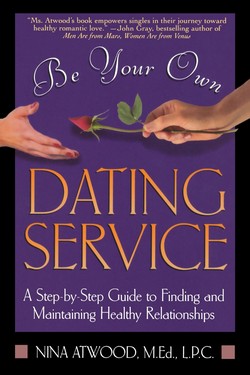Marriage is Better than Living Together – By Far! Here’s Why
By Nina Atwood

If you’re dating someone special and talking about living together, think twice. It may not be as good for you as you think.
 The other day I came home stressed out and my husband offered to give me a head and shoulder rub. What bliss! Not only did it feel good to my tense muscles, but as he rubbed, I felt my entire system calm down.
The other day I came home stressed out and my husband offered to give me a head and shoulder rub. What bliss! Not only did it feel good to my tense muscles, but as he rubbed, I felt my entire system calm down.
I know without having to think about it that my husband loves me and is there for me. So that neck and shoulder rub wasn’t just physically therapeutic, it was emotionally therapeutic. And there was an additional bonus: It’s a safeguard against the health impacts of stress. The big news: couples who live together cannot gain those same benefits.
We’ve known for a long time that a good marriage is better for you than being contentedly single. It is well documented that married couples gain significant health, economic, and quality of life benefits. But we haven’t had research that documents the difference between marrying and living together, regarding those same benefits, not until now. Here’s what researchers at the University of Virginia found, and what it means for you.
If you’re “just living together,” your brain knows that it’s not the same thing as being married. Using functional MRIs (fMRIs), the researchers found that people have a decreased reaction to stress when holding the hand of a married partner. But when the hand they hold is that of a live-in partner, their reaction to stress is significantly higher. Why? Because the brain can’t relax.
One of the most important aspects of a good relationship is that you feel safe with your partner, that you believe your partner has your back and is really there for you. Getting married is the highest level of commitment. It conveys to both of you that you are willing to throw all of it in together – your living space, your assets, your emotional vulnerability, your health and overall well-being.
Marriage is the highest and most significant love of your lifetime. There is no other relationship in which you commit to being together not just for years, but for decades, and in which you commit not to bail even if it is challenging. You’re in it for the long run.
The research now shows that when you make that level of commitment, your brain gets it and relaxes. You really do emotionally “exhale”� in the context of marriage in a way that you cannot in a living together relationship. Your brain knows the difference; it knows that when you are not married, you haven’t yet made that level of commitment.
If you’re considering living together, here’s what you need to know. You won’t get the benefits of marriage, so don’t expect them. Don’t expect your live-in partner to give you the kind of devotion and commitment you would expect from a husband or wife. Don’t be surprised if there’s an underlying feeling of insecurity that you thought would disappear after the moving truck drove away. It won’t. It can’t.
Ask yourself: why am I moving in together rather than holding out for marriage? Dig deep, uncover the real reasons. Most couples who live together do so for the wrong reasons: to save money on rent, as a test for marriage (if this goes well, then I’ll consider marrying this person), or to avoid making a deeper commitment.
If you’re tempted to settle for a live in arrangement, maybe it’s time to take a step back and aim higher. Aim for someone with whom the idea of sharing the rest of your life is mutually exciting and desirable. Aim for someone with whom getting married is the step toward which you are dating, and that you c’t imagine anything less. Get your own act together so that you can hold out for a relationship that offers the whole package: love, devotion, commitment, and a happy life together – for a lifetime!
Entry Filed under: Advice for Men,Advice for Women,Dating,Marriage,Relationships





